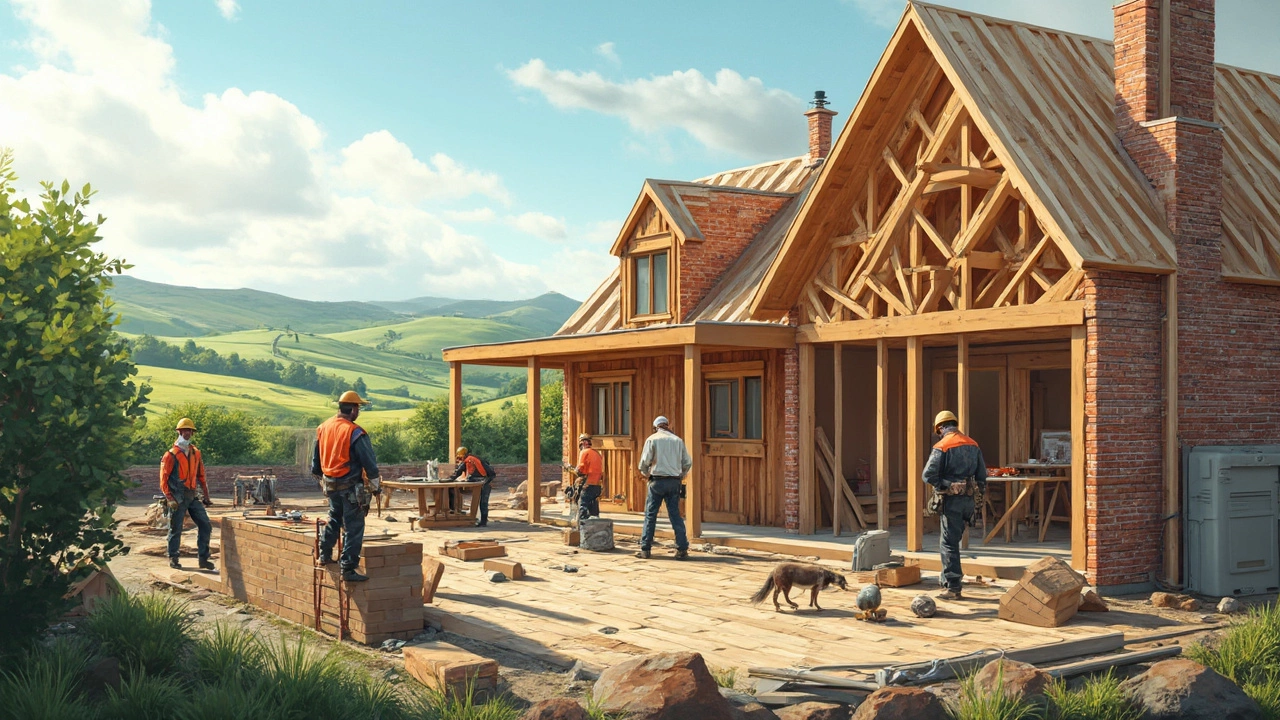Construction Costs – A Practical Guide for Home Projects
Thinking about a new conservatory, a kitchen remodel, or a whole house build? The first thing most people ask is, "How much will it cost?" The answer depends on a few key factors, but you can keep the numbers in check by understanding where money goes.
Labour is usually the biggest chunk of any budget. Skilled tradespeople charge per hour, and rates vary by region. In the south of England you might pay £30‑£45 per hour, while the north often sits a few pounds cheaper. Knowing the hourly rates for carpenters, electricians and plasterers helps you spot unrealistic quotes early.
Materials Matter – Choose Smart, Not Cheap
Materials are the second major expense. A solid brick wall will cost more than a timber frame, but it also lasts longer and needs less maintenance. If you’re building a garden room, consider insulated panels – they’re pricier upfront but cut heating bills later. Look for bulk discounts on sand, cement and steel; many suppliers shave 5‑10% off if you buy more than 10 tonnes.
Cheapest building methods aren’t always the best choice. In 2025, modular construction is gaining ground because factories control waste and labour, which often lowers the final price by 15‑20% compared to traditional on‑site builds. That’s a solid reason to ask your builder if off‑site modules fit your project.
Hidden Costs You Can’t Ignore
Permit fees, site surveys and waste removal are easy to overlook. A standard planning permission in most UK councils runs £200‑£500, but if your project falls under permitted development rules you can save that amount entirely. Always budget an extra 10‑15% for unexpected items like soil remediation or extra ducting – they pop up more often than you think.
Insurance is another hidden line item. Not all policies cover foundation issues or water ingress, so read the fine print. Adding a coverage clause for foundation repair can add £100‑£250 a year, but it protects you from costly surprises down the road.
When you compare building vs buying, factor in the long‑term savings. A newly built home often has better energy performance, meaning lower utility bills. Use an online mortgage calculator to see how much you’d save each year, then weigh that against the upfront construction cost.
For extensions, the size of the project drives the price. As a rule of thumb, a modest 10‑square‑meter conservatory costs around £15,000‑£20,000, while a larger 30‑square‑meter home office can push past £45,000. Adding a loft conversion usually runs £30,000‑£45,000, depending on roof shape and existing services.
One trick to stretch your budget is to do part of the work yourself. Tasks like painting, demolition or basic tiling can be tackled by confident DIYers and shave a few thousand off the total. Just be sure you have the right tools and follow safety guidelines.
Finally, keep a clear spreadsheet. List every line item – labour, materials, permits, insurance, contingency – and update it as quotes come in. Seeing the numbers in one place helps you negotiate better and avoid over‑spending.
Ready to explore more details? Browse our articles on foundation crack sizes, cheap building methods, and the biggest construction companies. They’re packed with real‑world examples and cost breakdowns that make budgeting less of a guessing game.

